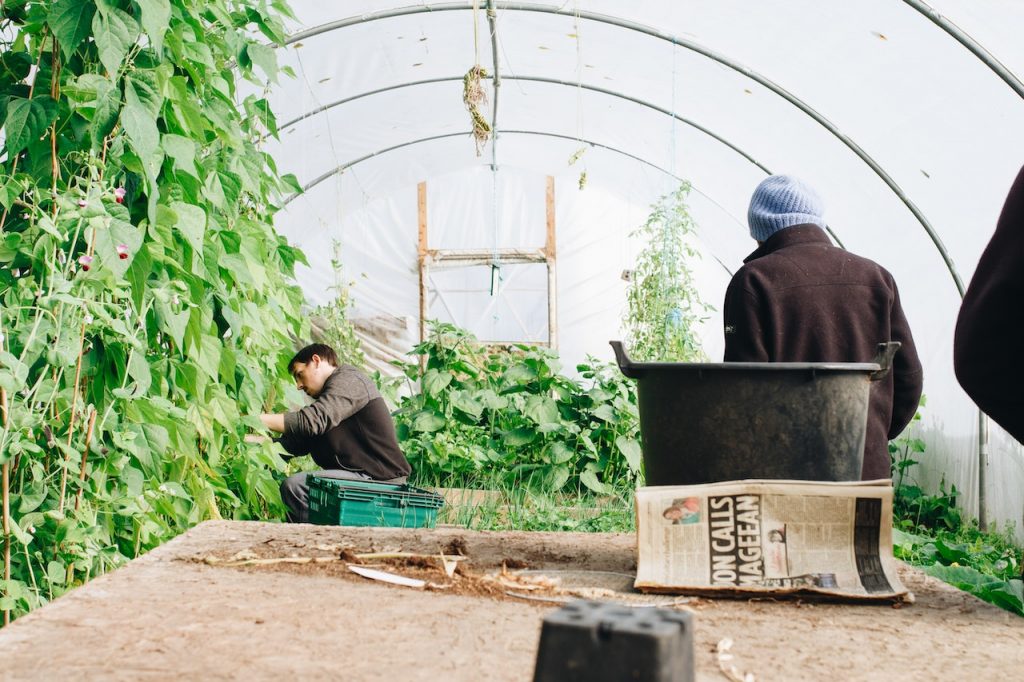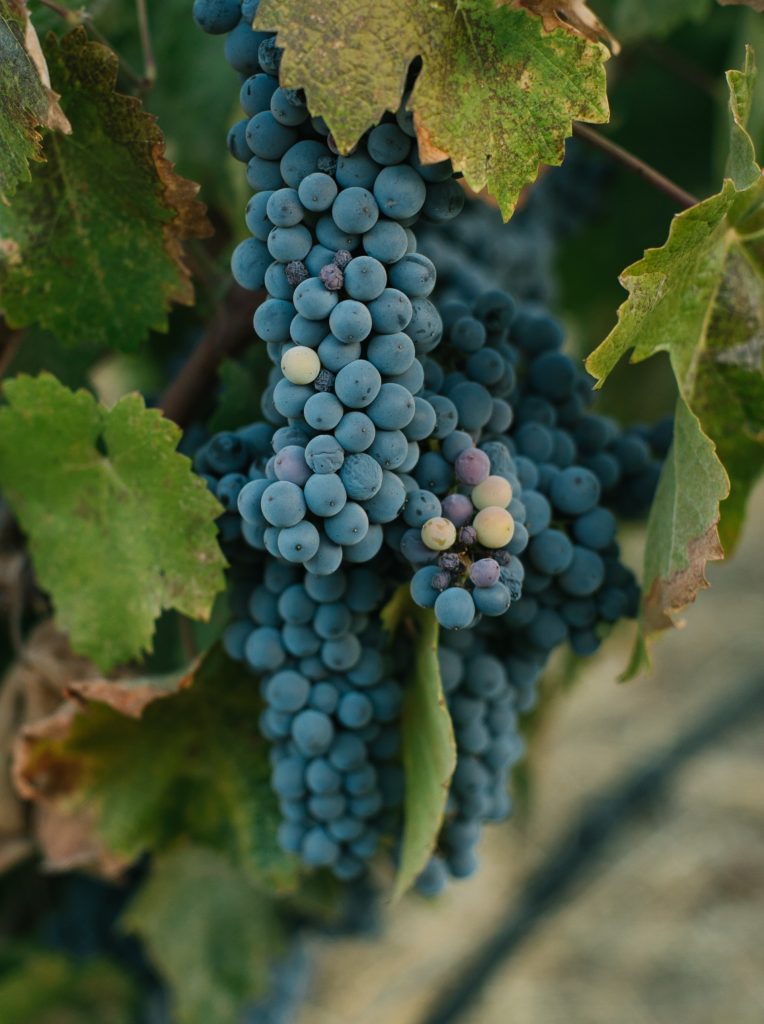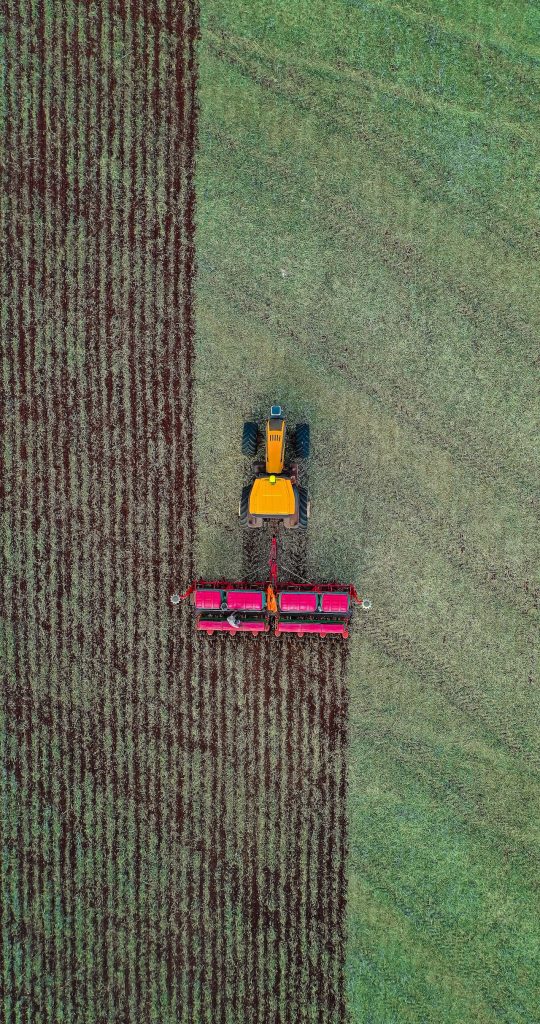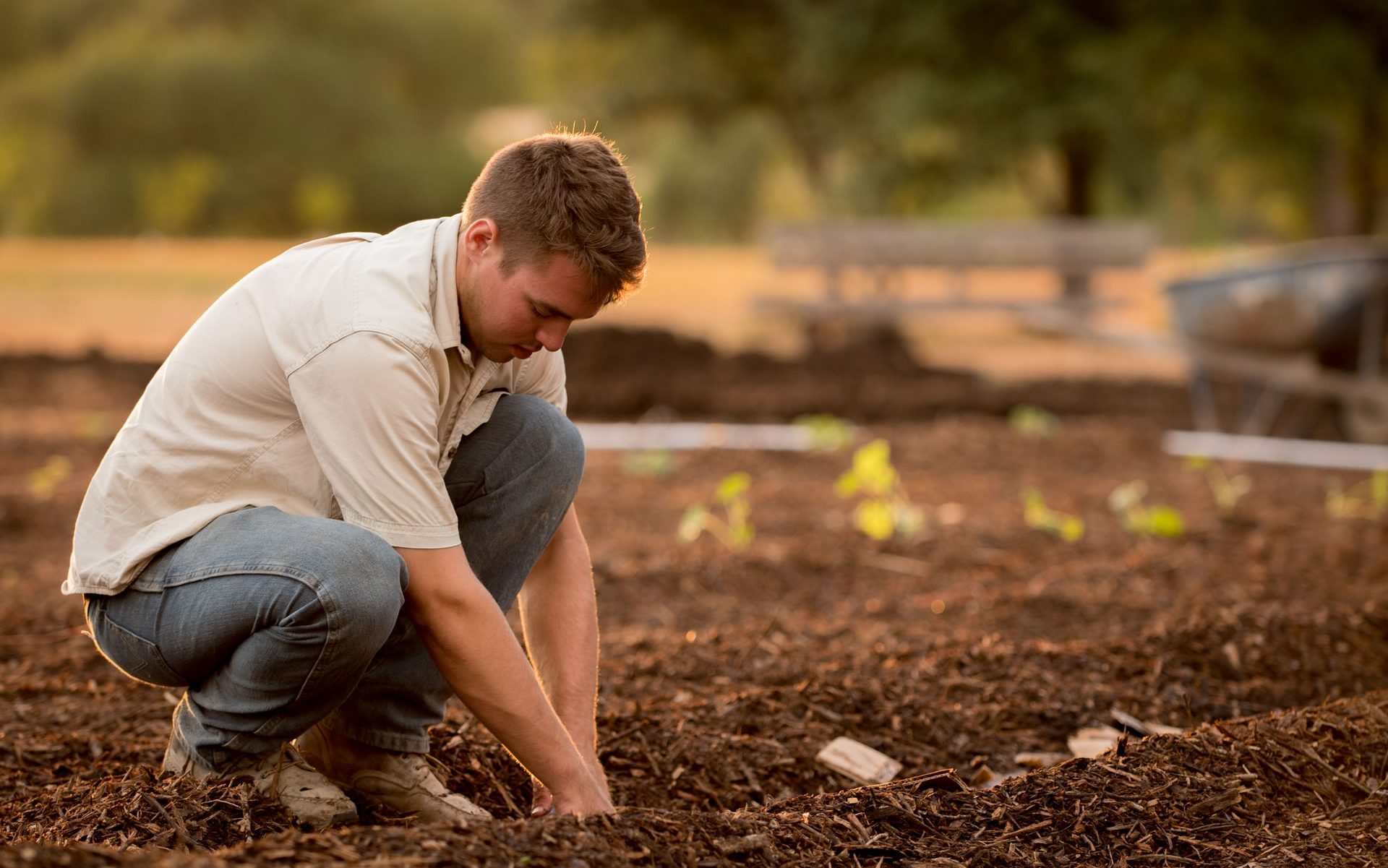Diploma vs degree levels compared across different countries and education boards; are they that different? There is a lot of confusion among students who want to study agriculture abroad about how each country views degree and diploma qualifications. Is a diploma in the United States at the same level as one in Australia? What’s the difference between a diploma and an associate’s degree? Will your undergraduate agriculture degree from Canada be recognised in the United Kingdom? How about majors and subject areas in farming?
Taking into account the rapid growth of agriculture and agtech sectors, our guide helps you select a degree program that will lead to a successful agriculture career. Learn the differences between the types of agriculture qualifications, majors, and concentrations. Then, discover the best countries to study agriculture and fisheries in.
- The Different Undergraduate and Postgraduate Qualifications
- Undergraduate Qualifications and Below – Diploma vs Degree
- Associate Degree, Foundation Degree, and Other Undergraduate Diploma Programs
- Bachelor’s Degree Program (Undergraduate Degree in Agriculture)
- Postgraduate qualifications
- Majors and specializations for your degree in agriculture
- Distinguishing Science vs Business Programs
- The top related degrees in agribusiness and agriculture-related business:
- The top related degrees in agriculture sciences and farm management:
- Subject Areas in Agriculture
- Food Science
- Horticulture and Viticulture
- Animal Science & Animal Husbandry
- Fisheries Studies
- Forestry Studies
- How might someone’s path in studying agriculture look?
- Deciding between international and domestic education — the advantages and facts you need to know
- Bottom Line: Diploma vs Degree. Picking your qualification level and specialisation
- Agriculture & farming courses to kickstart your career
The Different Undergraduate and Postgraduate Qualifications

Programs in agriculture can be sorted into undergraduate and postgraduate qualifications. What makes this complicated are similar qualifications across countries that may have different equivalencies. This section helps you discern the differences. However, if you do need an assessment of education equivalencies when applying for a farming cour abroad, do use an education assessment service like WES.
Undergraduate Qualifications and Below – Diploma vs Degree
Undergraduate qualifications typically include most post-secondary/high school qualifications that are a bachelor’s degree and anything below it. This includes associate’s degree, advanced diploma, and diploma.
While a bachelor’s degree takes 3 to 4 years of full-time study, the rest generally take 1 to 2 years.
Associate Degree, Foundation Degree, and Other Undergraduate Diploma Programs
Qualifications below a bachelor’s degree often take only 1 to 2 years of study. These qualifications include advanced diplomas, associate’s degrees, and foundation degrees, which provide a sturdy foundation in agriculture. They can be found throughout institutions, like polytechnics, colleges, TAFEs or even universities.

Despite diplomas and associate’s degrees offering lower pay scales in terms of job opportunities, for many people, they are all they need to start their agribusiness career. Furthermore, agriculture diplomas and associate’s degrees are much less expensive and often allow students to maintain a flexible schedule.
Diploma vs Associate degree qualifications with equivalent levels across countries
An associate’s degree is an undergraduate degree above a high school diploma or secondary school qualification, but below a bachelor’s degree. Equivalent to its level are advanced diplomas in Australia and the Foundation Degree and HND (Higher National Diploma) in the UK.
Australia – Diploma vs Degree (Associate)
In Australia, an associate’s degree is at the same level as an advanced diploma (AQF level 6) but it focuses on foundational academic knowledge, rather than industry experience. It is possible to transfer credits from an Australian associate’s degree to a bachelor’s degree.
The United States and Canada – Diploma vs Degree (Associate)
In the US and the Canadian province of British Columbia, it is possible to enter the third year of a bachelor’s degree after earning an associate degree that serves as the foundation. Outside of British Columbia, Canadian provinces generally do not offer associate degrees but have similar diplomas or pre-university technical qualifications that act in the same way. Do note that education qualification standards in Canada are set at the provincial level.
United Kingdom – Diploma vs Degree (Associate)
In the UK, an Agriculture HND (Higher National Diploma) is the closest equivalent to an associate’s degree in the United States. Taking the HND takes two years of full-time study. With an additional year of study, this qualification can be converted into a bachelor’s degree.
Similarly, the foundation degree in the UK is equivalent to two-thirds of a bachelor’s degree with honours. Graduates who complete this program become eligible to continue on to an honours degree, often adding a final year.
Bachelor’s Degree Program (Undergraduate Degree in Agriculture)
An agriculture bachelor’s degree is a tertiary program where you choose your major and start to define your field of agricultural studies. It takes three to four years of full-time study to complete, depending on the country you’re in. In the United States and Canada, bachelor’s degrees tend to take four years, while in the UK and Australia, it typically takes three years unless it includes an honours program.

In fields like farm management and agribusiness, the graduates typically gain the skills and experience to run an agribusiness mechanically and financially. While graduates in agriculture sciences are more qualified to conduct scientific agriculture research. Within an agriculture bachelor’s degree program, students will choose their major at this point, making this stage crucial for future career goals.
Because the scope of study for agriculture is so wide, choosing the right major and specialization as a graduate of a degree program is very important. A Bachelor of Science in Forestry will not be beneficial if you wish to manage an agribusiness operation in dairy production.
Postgraduate qualifications
Those who have already completed a bachelor’s degree and wish to expand their expertise in a particular field pursue postgraduate degrees. The master’s degree program may require a couple of years of industry experience, but some programs allow fresh graduates to enrol. Postgraduate degrees include master’s degree, doctor of philosophy (PhD), and doctoral degree.
Other than degrees, some countries offer postgraduate diplomas, which are vocational in nature and cost less than postgraduate degrees. Other types of postgrad certifications can include Graduate Certificates.
Graduate Certificate
Beyond the question of getting a diploma vs a degree, a Graduate Certificate is a higher education qualification designed for students who already have expertise in their industry and want to specialize their skills and knowledge in a specific field and narrower topic. The coursework, therefore, is less extensive than a degree program.
In some countries, a graduate certificate is equivalent to the level of a bachelor’s or postgraduate degree, albeit limited in the subject matter.
In the United Kingdom and Singapore, the qualification is at the same level as a bachelor’s degree and usually takes months to complete. To pursue this qualification in Australia or Canada, you usually need a bachelor’s degree (with or without honours). Likewise, in the United States, graduate certificates are qualifications for very specific subject areas.
Graduate certificates are often accepted as part of the coursework for master’s degrees, allowing candidates to receive exemptions if they later pursue a postgraduate degree.
Majors and specializations for your degree in agriculture

Agriculture majors and fields of study are a very mixed pot and represent the vast fields that are placed under the banner of agriculture and farming. Which subject is best fo agriculture?
Distinguishing Science vs Business Programs
Agriculture majors include everything from business-related degrees for agribusiness to science degrees for the management of farms and everything involved with the production and harvesting of crops, livestock, etc.
There is agriculture science which will focus on fields like plant breeding and genetics, all aiming to improve crop production and production-related operations – to agribusiness operations that focus on non-farming related fields, such as agricultural management, renewable energy analysis and agricultural economist.
The top related degrees in agribusiness and agriculture-related business:
- Bachelor of Agribusiness
- Bachelor of Commerce – Food and Agribusiness
- Bachelor of Agriculture
These programs are better suited for those who enjoy the financial and managerial aspects of business and agriculture.

The top related degrees in agriculture sciences and farm management:
- Bachelor of Science in Agriculture – Agricultural Communications (Animal Science)
- Bachelor of Science in Forestry
- BSc (Hons) Woodland Management and Conservation
- Bachelor of Science in Animal Sciences (Animal Biology)
- Bachelor of Science in Horticultural Science (Organic Horticultural Systems)
- Bachelor of Science in Foods and Nutrition
These programs attract individuals who enjoy the research, science, and technical facets of agriculture. You must choose your major with your career goals and future plans always in mind.
Subject Areas in Agriculture
We’ve listed out a few of the most popular and beneficial agriculture majors and specializations, based on career and financial benefits.
Food Science
Food science is the study of food and how it relates to the health of people and the environment. It is a field that combines the disciplines of biology, chemistry, and physics to understand the properties and interactions of food. This degree is for those who have a passion for innovation and agricultural science, working with cutting-edge technology and new research to better the world of farming and agriculture as a whole.
Food science careers can involve working with farmers to ensure food safety, developing new ways to grow and process food, or working in a laboratory to develop new foods. Common areas of focus include improving crop production and crop yield on a cellular level, and other food-related practices that affect the entire world. This area of study and focus is important for production productivity in every agribusiness.
Horticulture and Viticulture

Horticulture and viticulture are two specialisations within the agriculture industry. It is the science and art of growing fruits, vegetables, flowers, or ornamental plants. Viticulture is the science, production, and study of grapes. Both horticulture and viticulture require knowledge in plant science and ecology, as well as pest management. The two specialisations differ in the type of plants grown and the climate conditions required for successful cultivation. Horticulturists typically work in greenhouses or nurseries, while viticulturists work in vineyards.
From Horticulture Consultants to Plant Pathologists, having a degree or certificate in Horticulture opens many career doors, with many Universities offering different degree programs and diploma certificates.
Animal Science & Animal Husbandry
Animal science is the study of animals and their relationship to humans. It is a broad field that encompasses many different areas of research. This includes animal nutrition, animal health, animal behaviour, and animal husbandry.
Animal husbandry is the branch of agriculture concerned with the care and management of farm animals. It includes all aspects of animal health, welfare, and production. A specialization in animal husbandry focuses on the science and business of animal agriculture. Students learn about animal nutrition, physiology, reproduction, and genetics. They also study animal health and disease, as well as business management principles.
Some people who study animal science may go on to work in the veterinary field. Others may work in agriculture, breeding and raising animals for food production. Still, others may work in research, studying the behaviour and biology of animals.
With further study, one could specialize in caring for a particular type of animal, such as horses, cows, or chickens. One could also focus on a specific area of research, such as animal nutrition or disease prevention.
Fisheries Studies

Fisheries studies is the scientific study of fish and other aquatic animals in their natural environment. It includes all aspects of fish biology, including their evolutionary history, physiology, ecology, and behaviour. Fisheries studies also encompass the management and conservation of fish populations.
A major in fisheries studies can lead to many different career paths, from working as a fish and wildlife biologist to a seafood quality control specialist. The job outlook for graduates is superb, as there is a growing demand for experts in the field.
Forestry Studies
A forestry studies program is an interdisciplinary field that prepares students for careers in forestry and natural resource management. The program combines coursework in biology, ecology, geology, atmospheric science, and other related disciplines with hands-on experience in managing forests and other natural resources. Forestry studies programs typically include a mix of classroom instruction and fieldwork, and many programs offer internships and research opportunities.
How might someone’s path in studying agriculture look?

After secondary or high school, you can opt to take a diploma or associate degree level program that gives you a foundation in agriculture. The Foundation degree, also equivalent to an Associate’s degree and Advance Diploma, can give you valuable skills for agribusiness and farming-related operations. Diploma vs degree (i.e. Associate or Foundational) – most of these programs are recognised for advanced standing in a bachelor’s degree program. So if cost is a challenge to you, you can break your university education up in such a way, and work in the agriculture industry to save up some money.
Next, you’d move on to an agriculture-related bachelor’s degree and eventually decide on your major. This allows you to focus on an area of expertise, as degree programs cover all the technical aspects of agriculture, from agricultural science and technology to the economic management of agribusiness. After you graduate, you’d enter the workforce with much higher success in employability due to the connections you’ve made at school.
From time to time, you can choose to take Graduate Certificate programs to attain specific knowledge in the agriculture field. And if you have the interest, move on to a postgraduate degree.
At any time, you could think about continuing your education abroad.
This could be your path
- Associate’s Degree in Agriculture
- Bachelor of Science in Horticultural Science (Organic Horticultural Systems)
- Graduate Certificate in Aquaponics Technology
- Master’s Degree in Sustainable Horticulture
- Doctor of Philosophy (PhD) in Horticulture
Deciding between international and domestic education — the advantages and facts you need to know

Location, location, location — as it’s been said. Choosing the right country and university is very important because each institution offers different programs for their agricultural degrees. Living expenses and tuition fees can become expensive. The positive impact of education in leading agricultural countries is that their programs are the best in the world. This means outstanding learning opportunities for students.
If you choose a robust university in a country with a booming agriculture industry feeding their economy – practical experience and open job markets are just some of the benefits you can enjoy with your agriculture degree or diploma.
The United States
As one of the top global agriculture producers – the USA is a hot centre for career development and the job market is always looking for capable, well-educated individuals. Many of their universities and institutions are world-ranked, with degree programs that have been crafted by some of the best experts and leaders in the agriculture industry.
The total GDP in 2020 for agriculture and other related production in the US contributed over 1 trillion dollars USD. It also accounts for over 10% of USA employment. The agricultural industry is a goliath, to say the least.
Top-quantity exports include grain like wheat and corn for animal feed/fodder, cattle and calves, and almonds. Because of their gigantic agriculture industry, students who choose to study in the States will have a razor-sharp edge.

Canada
Canada has one of the most productive agriculture industries in the world, with some of the best university degree programs globally. International students can also gain scholarships, tuition discounts, accommodation, and stipends – to name the least, and for those looking for a good institution, Canada is known for its scholarship programs.
Canada’s impressive agribusiness and agriculture industry makes the job market a promising one for students and those who want to study agriculture. Being the largest producer of icewine in the world, Canada offers students a rich foundation for experience.
Canada has agriculture productions ranging from their booming fisheries and aquaculture production worth billions of dollars, USD – to diverse and varying crop and livestock production. Because of this, their job market is a magnet for passionate students.
New Zealand and Australia
New Zealand and Australia are one of the best countries for studying agriculture. Their universities have the highest-ranking agriculture and agribusiness programs, and graduates from those institutions have over a 90% employment rate.
Their universities are world-ranked, dedicating large pieces of land for practical studies, allowing students to gain valuable hands-on experience of the physical aspects of agribusiness. Australia’s crop production is a surprising one and was the largest producer of lupin beans in the world in 2018. Some crop types include potatoes, watermelon, grapes, sugarcane, tomatoes, and peas.
Australian universities and institutions also offer various agriculture scholarships for international students, giving financially disadvantaged individuals the opportunity to access some of the greatest programs in the world. Interestingly, Australia also has TAFE institutions with strong agriculture vocation training programs, open to international students.
Check out the diploma vs degree comparisons above when applying for a program.
United Kingdom
The United Kingdom has a lucrative agricultural trade with their exports growing every year, from cattle and dairy to other food-related products. Their prestigious and high-ranking institutions offer students rich agriculture degree programs and have seen one of the highest course increases in UK universities.
The UK is one of the largest world producers of cow milk and has large exports of wheat and meat (chicken, cattle, pig, and sheep) every year. The UK’s job market has also been growing, with nearly 400 000 people employed in their agriculture sectors.
Remote: Online Learning
Online agriculture degree/diploma programs are fast becoming one of the most valuable tools for the modern world, which has allowed millions of people access to information and educational certification. They are especially practical for those living in remote locations, with a lower budget.
Remote agriculture courses offer a wide array of choices and subject matter for you to choose from, providing a solid foundation to start your agribusiness or career in agriculture.
The flexibility of online learning caters to the busy individual who has to juggle a busy life or is restricted by travel or expense. And, surprisingly, many distance learning degree programs have been made flexible by university faculties. As such, online learning is an option for you if on-campus learning is not accessible to you.
Bottom Line: Diploma vs Degree. Picking your qualification level and specialisation
Picking the right specialisation and qualification depends on your interest, budget, and career goals.
If budget is an issue, there is no shame in taking up an advanced diploma/associate’s degree that lets you skip one to two years of a bachelor’s degree program in the future. You can work a few years before continuing on to a bachelor’s degree program. If scientific research and discoveries are what you seek, a BSc degree in the sciences is where your path begins.
You can also consider taking your degree in another country to learn agriculture techniques and business practices unique to the location (or to continue working there).
In the next part of the series, we’ll reveal the step-by-step process to evaluate the best program for yourself.
Agriculture & farming courses to kickstart your career
Whether you’re a career or hobby farmer, find the best training for yourself.


